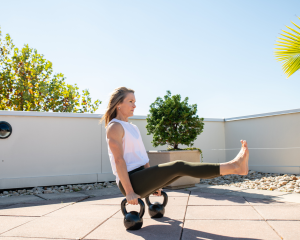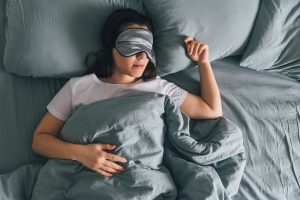Last time we talked about menopause, I explained the battle going on in your body and brain during perimenopause. Now let’s get to the stage in your life, menopause. Menopause is official when you have no longer had your period for 12 consecutive months. This is the stage that lasts for the rest of your life.
Up until the 1970s, there was little research about or treatment for perimenopause and menopause symptoms. In fact, the studies then were conducted on men, not women. Ouch!
Now we know perimenopause lasts on average between four and eight years, and is loaded with clear signs like serious irritability, hot flashes (this includes night sweats, too), and sleep disruptions. But there are also some inconspicuous signs. Although you still have your monthly cycle — so, yes, you are still able to conceive — behind the scenes the system is beginning to falter because estrogen production is slowing.
Pre-menopause, estrogen is critical:
- The monthly cycle consists of the brain telling the ovaries to ovulate by sending it signals to produce estrogen, testosterone, which boosts libido, and progesterone, whose main role is to stabilize the lining of the of the uterus to support pregnancy. All three of these hormones work in concert with one goal in mind: to stimulate an egg that’s nestled inside an ovary to mature and release for insemination.
Well when ovulation ceases, guess what? So does estrogen production. While the brain was super confused when you experienced perimenopause, where hormone production was merely slowing down, it is now really fighting you because you are no longer producing its beloved hormone, estrogen.
So, what is the big deal about estrogen?
It turns out the body requires estrogen for more than just ovulation. In fact, estrogen receptors exist all over our body: heart, bone, brain, bladder, breast, vagina, colon, and skin. Estrogen is vital for overall health and wellness, and is an essential part of who we are as women. Remove it, and major systems fall out of balance, resulting in a range of unpleasant symptoms.
These are tell-tale symptoms of menopause.
Hot flashes
A full 80 percent of women experience them and there is STILL no scientific nor medical conclusion what causes them. They last on average for seven years and can last in duration from five to 30 minutes. Hot flashes are actually your body’s way of cooling down: dilating the blood vessels at the surface of your skin due to a temperature disruption. We do know that if you suffered from premenstrual symptoms as a young woman, you are more likely to suffer from hot flashes.
Weight Gain
This is caused by lack of sleep, leading to less motivation to exercise, and more hunger due to lack of sleep. (Read my sleep piece here for a refresher on how losing sleep has a direct impact on your weight.)
In addition, muscle mass decreases, metabolism slows, and we sometimes still eat — and live — like we are in our 20s still and:
- Don’t eat enough fruits and veggies
- Yo-yo diet
- Consume too many processed foods and meats
- Snack
- Continue the deprivation method of dieting
- Sugar (coffee drinks, alcohol)
Dryness
From eye dryness to vaginal dryness and irritation, take note of all the dryness happening all around your body during menopause. Everything, including the muscles and the fascia – the layer between your skin and muscles – is drying out!
Skin Issues
This is a direct result of decreased estrogen. Skin, the largest organ of our body, protects us from infection, dehydration, and physical damage from the sun. However, during menopause we see:
- Decreased thickness, firmness and elasticity, wrinkles, and, yes, dryness.
- Less collagen due to decreased estrogen. In the first five years of menopause, we lose as much as 30 percent of the collagen.
- Skin takes longer to heal.
- Acne! 25 percent of women experience adult acne in midlife (more likely if had acne as a teenager) because your body is still producing testosterone until 5 years after last period.
- Decreased confidence, self-esteem, and quality of life, all from skin issues!
But don’t lose hope!
Stay tuned for my upcoming articles on menopause where I’ll outline of the variety of ways to address menopause and – I hope – help you choose the best path for you and the rest of your life!



